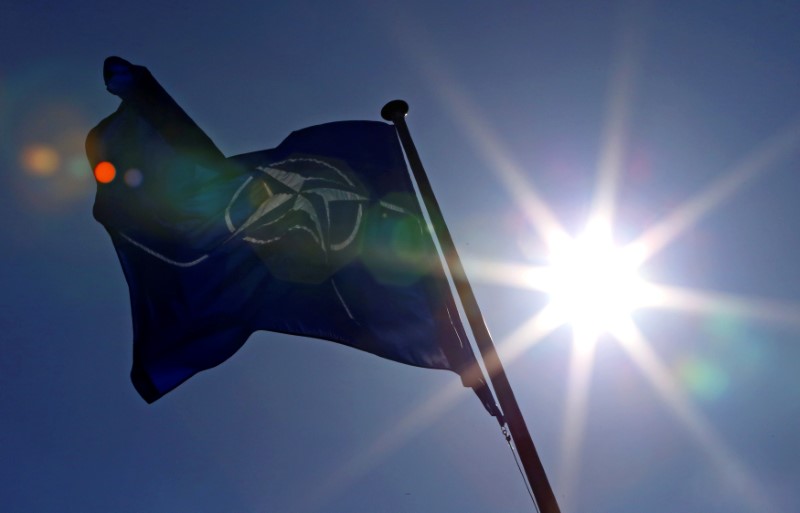
FILE PHOTO – A NATO flag flies at the Alliance’s headquarters in Brussels March 2, 2014. REUTERS/Yves Herman/File photo
February 7, 2018
By Andrea Shalal
BERLIN (Reuters) – The erosion of arms control agreements, deployment of additional weapons and tensions over military exercises have increased the risk of an inadvertent armed clash between Europe and Russia, according to the annual Munich Security Report.
The report, entitled “To the Brink – and Back?”, cited growing pressure on nuclear disarmament treaties like the Intermediate-Range Nuclear Forces Treaty (INF) and ongoing security concerns in eastern and central Europe.
NATO insists it does not want a new arms race with Russia, but the current situation could “lead to a further deterioration of the security situation in Europe,” said the report, which will be formally released on Thursday before next week’s Munich Security Conference.
“In this dire state of affairs, miscalculations and misunderstandings could well lead to an inadvertent military clash,” it said.
About 500 senior government and military leaders from Europe, Africa, the United States, Russia and the Gulf will debate security challenges at the annual event in Munich from Feb. 16-18.
The conflict in Ukraine also posed a huge stumbling block to de-escalation of tensions between Russia and the West, the report said, noting that a U.S. decision to provide lethal arms to Ukraine would probably cement the current stalemate.
It said countries in eastern Europe were struggling in “an environment of contested security,” caught between the European Union and NATO on one side and Russia on the other, at a time when the EU’s Eastern Partnership policy had “lost its steam” and there was little chance of NATO taking in more members in the near future.
Some EU member states were increasingly skeptical about further EU integration, with Hungary and Poland in direct confrontation with Brussels. Germany – usually a force for EU integration – had been largely absent from the debate for domestic reasons.
The news was not all bad, however, the report said. Economic growth and improved public opinion offered “more than a glimmer of hope” for the EU on the economic front.
In addition, Military cooperation on NATO’s eastern flank had progressed, and the alliance was now overhauling its military command structure.
It also lauded a decision by 25 EU member states to launch the Permanent Structure Cooperation (PESCO) to advance defense cooperation, as well as a decision by Germany and France to jointly develop a new generation of fighter jets.
“The coming year will show whether attempts to compromise and ambitious reform proposals will translate into concrete actions and decisions to mend the cracks in the EU,” it said.
(Reporting by Andrea Shalal, editing by Larry Kin)

